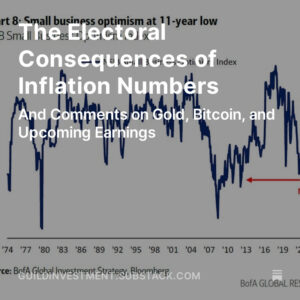Often in the years since the European sovereign debt crisis, we’ve noted that the European banking system has remained a weak link in the global financial system. In our view, this trouble spot was a likely epicenter of a future crisis. The coronavirus pandemic looked like it could have been the exogenous event that tipped Europe back into financial instability. The European Central Bank responded to the crisis similarly to the U.S. Federal Reserve, ramping up asset purchases and opening new facilities. But the Achilles’ Heel of the European Union was on stark display: the lack of fiscal integration. European nations must all issue their own debt, and Germany even struck back at the ECB’s pandemic programs in court. Without fiscal transfers and the issuance of debt common to all the European Union member states, hard-hit countries such as Italy and Spain, which are also the EU’s weakest states financially, would be left with sovereign debt yields far above those of the better-managed northern countries such as Germany, Holland, Finland, and Sweden. That in turn might put the euro currency and the whole European project back on the ropes.
Three days ago, though, France’s Emmanuel Macron and Germany’s Angela Merkel made a momentous announcement: the two leaders had agreed in principle to a mechanism for the issuance of common European debt to be paid back not by the individual beneficiaries, but through the common European budget. In essence that would mean transfers from the wealthy north to the troubled south of Europe – something Merkel had long categorically refused. One commentator called it a “Hamiltonian moment,” likening it to American founding father Alexander Hamilton’s moves to assume individual state debts by the new United States federal government in the early days of the U.S.
If the program goes through – which looks likely, even though some smaller northern European countries will object – it could mark a turning-point in the European project. This will not magically transform Europe into a growth powerhouse after the pandemic has passed, but it will mean that the virus will have had an unexpected effect. In the early days of the pandemic, the European states closing their borders to one another, it looked like the coronavirus could help contribute to further European disintegration and discord. Perhaps now the possibility is emerging that it may end up jump-starting a deeper European federalism.







